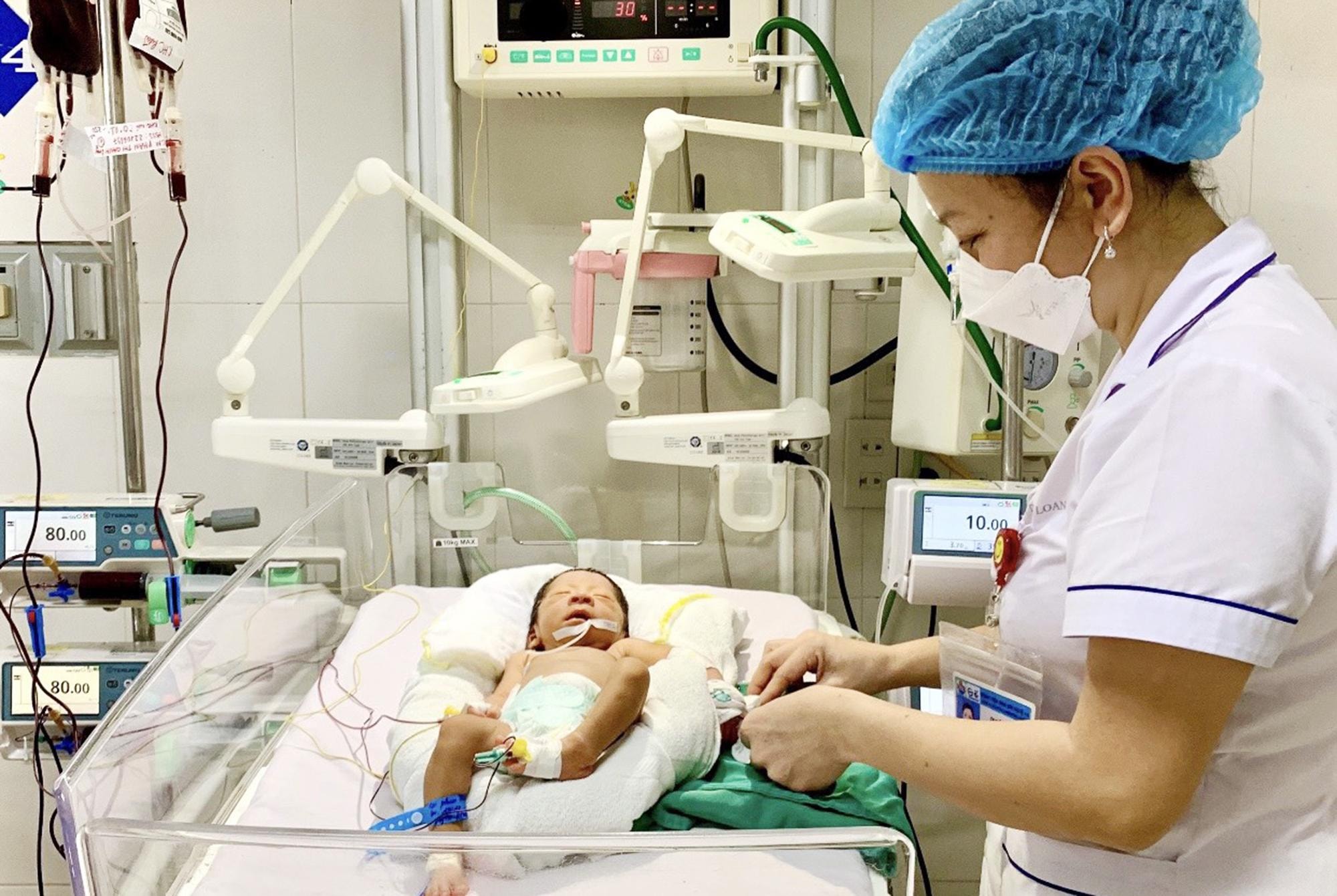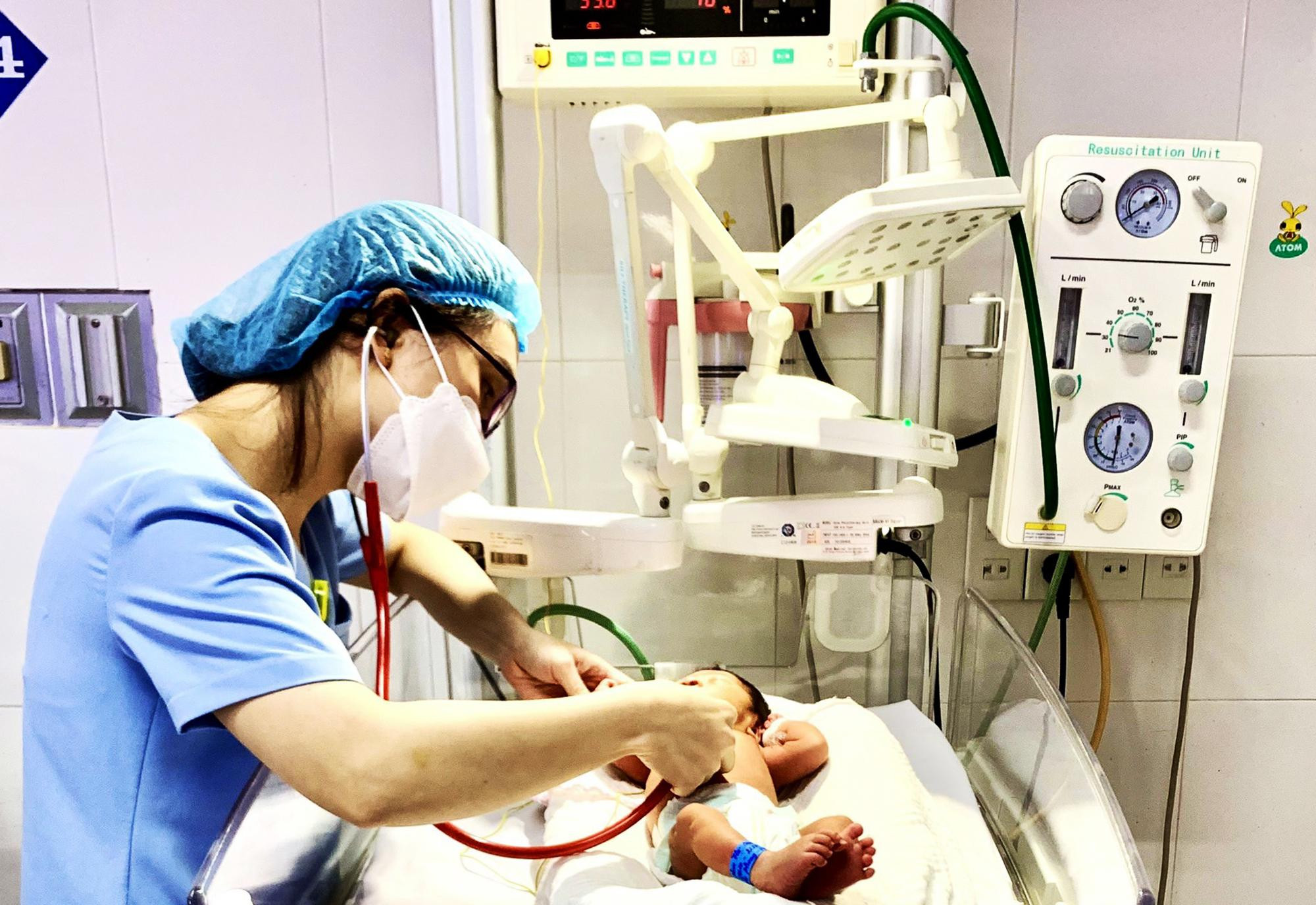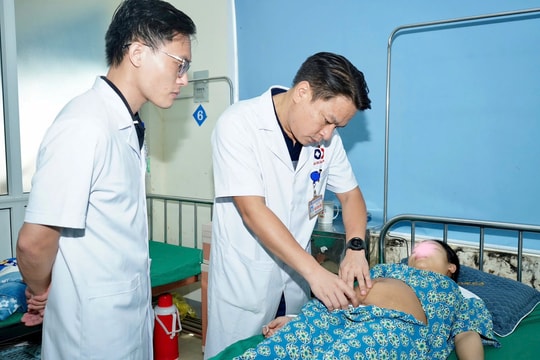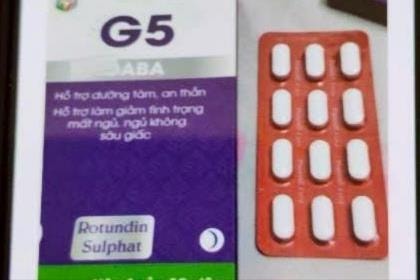Nghe An Obstetrics and Pediatrics Hospital successfully performed automated whole blood exchange technique to treat jaundice.
(Baonghean.vn) - On November 16, the Neonatal Intensive Care Department, Nghe An Obstetrics and Pediatrics Hospital announced: The Department has just successfully performed the automatic blood exchange technique for patient T. (residing in Nghi Loc district) due to pathological jaundice after birth when he was just 6 days old.
According to the family, patient T. was born at full term at 37 weeks of pregnancy, in good health, normal, weighing 2.7 kg. Six days after birth, the family took the child to the hospital because of red rashes scattered all over the body.Nghe An Obstetrics and Pediatrics Hospitalto examine
After examination, doctors discovered that patient T. had jaundice and ordered him to be hospitalized in the Department.Neonatal Emergency Resuscitationfor treatment. At the Neonatal Intensive Care Unit for treatment, the child continues to be examined and tested.
Doctors diagnosed patient T. with jaundice with increased free bilirubin due to maternal-fetal blood group incompatibility; indicated monitoring of kernicterus, treatment with active phototherapy and whole blood exchange. The automatic continuous blood exchange time lasted 2 hours.
 |
Patient T. underwent automated whole blood exchange to treat jaundice. Photo: Viet Ha |
After the blood transfusion, patient T. was retested, and the total bilirubin index had decreased significantly. Patient T. continued to receive phototherapy to actively treat jaundice and was discharged after 7 days of treatment.
Sharing about the case of a child with jaundice who had to undergo a whole blood transfusion, specialist doctor 2 Truong Le Thi - Head of the Neonatal Intensive Care Department said: There are many causes of hemolytic neonatal jaundice, in which, the common cause is due to incompatibility between mother and child's blood type.
If the jaundice is too severe, the jaundice will seep into the brain, causing neurological complications, leaving serious sequelae. In the case of patient T. with severe jaundice, if he is not given a blood transfusion and phototherapy in time, it could lead to serious complications, even death.
Blood transfusion is not a new technique, this technique has been applied at Nghe An Obstetrics and Pediatrics Hospital for more than 10 years. However, blood transfusion is applied completely by machine and electric syringe for the first time at the Hospital.
Automatic blood exchange helps ensure speed and sterility of the blood exchange process, and greatly supports medical staff in treating patients with severe jaundice.
 |
After receiving a blood transfusion, patient T's health improved and recovered. Photo: Viet Ha |
The success in applying new techniques to treat severe jaundice in newborns has clearly demonstrated the continuous efforts to improve the technical expertise of the medical staff of the Neonatal Intensive Care Department. At the same time, it further affirms the position of the leading hospital, the final line of the province in the field of treating pediatric diseases of Nghe An Obstetrics and Pediatrics Hospital.
Doctors also recommend: In the first days after birth, parents need to closely monitor their children to detect any unusual signs and jaundice in their children. Especially in the current cold weather, wrapping children too tightly and not being able to observe their whole body is the main reason why the rate of severe neonatal jaundice is higher.
Sun exposure will not reduce jaundice, and may even delay the child's arrival at a medical facility, causing irreversible neurological complications in severely jaundiced children. Treatment of jaundice depends on the clinical condition, history, and medical history of the newborn, and requires careful assessment and examination by a neonatologist.








